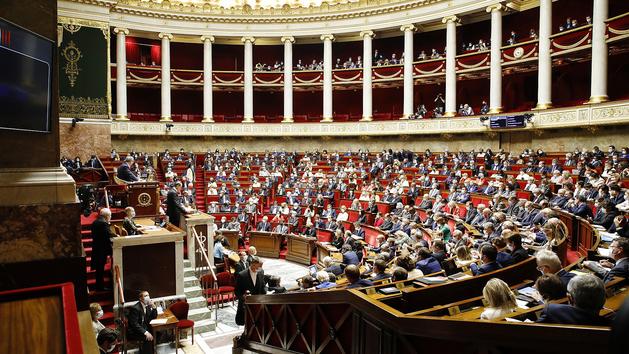Nearly 2,300 amendments were tabled for the second reading, before the National Assembly from Monday July 27, of the bioethics bill which opens medically assisted procreation (PMA) to all women, said Thursday 23 July, a parliamentary source. This is the last text on the menu of this extraordinary summer session, until Friday evening within the framework of a scheduled legislative time of 25 hours, which can go as far as doubling in practice.
Read also: Bioethics: LREM prepares its language before the debate in the Assembly
At first reading last autumn, some 2,600 amendments had already been tabled. The flagship measure of this vast bill is the extension of assisted reproduction to single women and female couples, Emmanuel Macron's campaign promise. It also includes a reform of filiation, a modification of access to origins for people born thanks to a sperm donation or even the self-preservation of oocytes.
Among the 2,300 amendments tabled, more than half come from LR deputies (some 1,300). The elected LREM have tabled 200. The government, which can still submit amendments at any time, already has a dozen. Unsurprisingly, they aim in particular to reverse certain votes of deputies in committee a few weeks ago.
Access to "non-identifying" donor data
As indicated by the Minister of Health Olivier Véran, the government does not wish to authorize the donation of gametes directed between two women within the same couple, if one of them suffers from infertility (technique known as ROPA ). He also does not want to expand the preimplantation diagnosis to search for chromosomal abnormalities, which opponents of the text call " eugenics ".
The government also wants to revert to the version of the text last fall concerning former donors. It has provided for children born from a donation to be able to access “ non-identifying data ” (age, physical characteristics, etc.) of the donor and even, if they so wish, to his identity, but only from the entry into force of the law.
There is therefore no question of a search for donors under the current regime in the event of a request made by a person born of their donation, a provision introduced in the Senate which would be " an intrusive route " according to the government. At first reading, the bill was adopted in October 2019 after two and a half weeks of passionate discussions. The Senate then adopted it but modified it in February 2020.
See also - PMA: did the senators do a good job?

